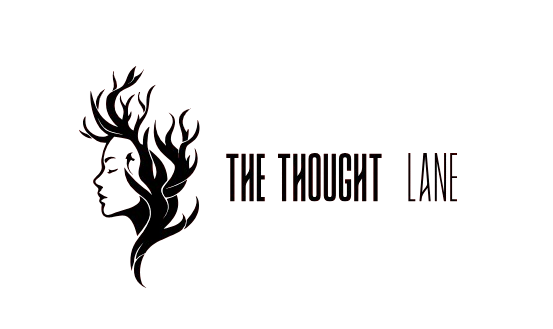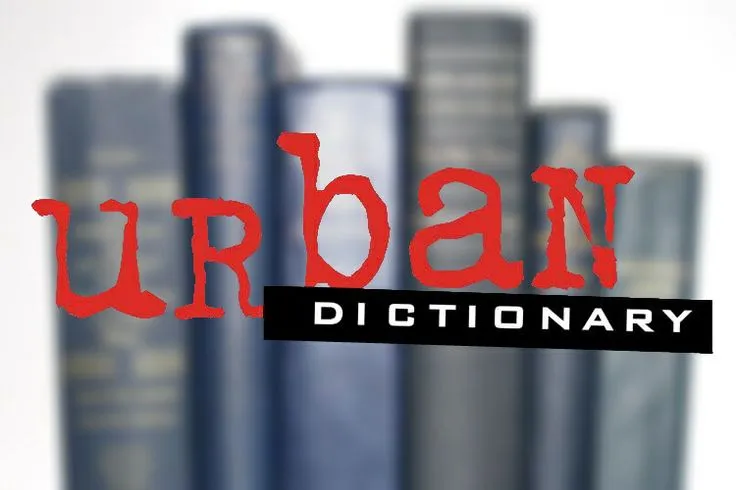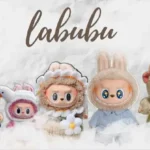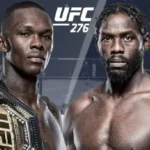Urban Dictionary is a crowdsourced online platform where users submit definitions for slang, pop culture phrases, internet trends, and even personal names. Founded in 1999, it has evolved into a digital encyclopedia of modern expression — often crude, often hilarious, and always real.
Whether you’re confused by the latest TikTok buzzword or deciphering cryptic Gen Z messages, Urban Dictionary is the internet’s most unfiltered translator.
The Origin Story of Urban Dictionary
Urban Dictionary was created by Aaron Peckham, a freshman at Cal Poly in 1999. What started as a parody of traditional dictionaries quickly became a necessary tool for decoding modern lingo.
Peckham noticed that formal dictionaries failed to keep pace with slang used in hip-hop, online chatrooms, and college campuses. So he built a site where people could define words how they were actually used — profanity and all.
By 2003, the site had tens of thousands of entries. By 2010, it was a go-to cultural reference. Today, with millions of user-submitted entries, it’s a living document of how language adapts to online life.
How Urban Dictionary Works
Urban Dictionary relies on user-generated content (UGC). Anyone can submit a definition. Each word can have multiple definitions, voted up or down by the community.
Key Features:
- Crowdsourced Definitions: Words can have dozens (or hundreds) of definitions, each reflecting a different perspective.
- Voting System: The best (funniest or most accurate) definitions are voted to the top.
- No Filters: Content is generally uncensored unless flagged as hate speech or explicit.
This democratic, chaotic approach makes it radically different from academic lexicons like Oxford or Merriam-Webster.
Why Urban Dictionary Became a Cultural Phenomenon
1. It Captures Language in Real-Time
Unlike traditional dictionaries that take months or years to publish updates, Urban Dictionary definitions appear instantly. This makes it a real-time linguistic time capsule.
2. It Reflects Internet Culture
Internet slang evolves rapidly. Words like:
- Ghosting
- Simp
- Karen
- Flex
- Cap/No Cap
…all gained traction thanks to platforms like Urban Dictionary.
3. It’s Ridiculously Entertaining
Some definitions are full-blown comedy. Others are weirdly poetic. Most are raw and uncensored. This makes browsing the site addictive.
Examples of Classic Urban Dictionary Definitions
- Netflix and Chill:
“A codeword for hooking up. Not actually watching Netflix.” - Savage:
“Someone who doesn’t care about consequences and speaks the cold, hard truth.” - Simp:
“A person who does way too much for someone they like.” - Karen:
“A middle-aged woman who acts entitled, rude, and asks to speak to the manager.”
Each term tells a story — not just of language, but of society, humor, and generational values.
Global Reach: Urban Dictionary Beyond the U.S.
Although it’s American in origin, Urban Dictionary has global relevance. As internet culture spreads, slang crosses borders, and users worldwide contribute regional phrases.
Examples:
- UK:
“Peng” (attractive), “bare” (a lot), “mandem” (group of guys) - Australia:
“Arvo” (afternoon), “bogan” (unsophisticated), “esky” (cooler box) - India:
“Jugaad” (creative hack), “timepass” (wasting time for fun) - Philippines:
“Jeproks” (laid back), “kilig” (the feeling of butterflies in your stomach)
Urban Dictionary gives slang a global stage, allowing users to share humor, identity, and emotion through their native expressions.
Urban Dictionary vs Traditional Dictionaries
| Feature | Urban Dictionary | Oxford/Merriam-Webster |
|---|---|---|
| Content Type | Slang, memes, jokes | Formal, verified language |
| Source | Crowdsourced | Experts & linguists |
| Tone | Informal, edgy, funny | Neutral and academic |
| Review Process | Public voting + light moderation | Rigorous editorial process |
| Update Speed | Instant | Periodic (quarterly/yearly) |
| Scope | Global subcultures | National/international standards |
Urban Dictionary doesn’t replace formal dictionaries. It complements them by tracking the chaotic, creative evolution of language in real-world use.
Role in Pop Culture and Media
Urban Dictionary has become a staple in mainstream culture.
TV & Celebrities
- Stars like Cardi B, Jimmy Fallon, and Billie Eilish have read their own Urban Dictionary definitions on shows like The Tonight Show.
- Shows like Brooklyn Nine-Nine, The Office, and Euphoria reference internet slang often featured on the platform.
Journalism & Academia
- News outlets cite Urban Dictionary when decoding online language.
- Professors use it in linguistics and media courses to illustrate the fluidity of meaning.
Urban Dictionary in Education?
While not designed for academic use, it’s used in classrooms:
- Linguistic Studies:
Analyze how slang evolves, regional differences, and gendered language. - Cultural Anthropology:
Study how groups express identity through vocabulary. - Digital Literacy:
Understand memes, internet movements, and viral lingo.
It’s also a research goldmine for understanding how culture, technology, and speech intersect.
Controversies Surrounding Urban Dictionary
Urban Dictionary’s strength — its openness — is also its greatest liability.
1. Offensive Content
Some entries are sexist, racist, or homophobic. Critics argue that the site occasionally amplifies harmful stereotypes under the guise of humor.
2. Defamatory Definitions
People can define names — often with mean-spirited intent. There have been multiple complaints of cyberbullying and harassment.
3. Lack of Fact-Checking
Definitions are based on opinion. This makes Urban Dictionary unsuitable for serious reference use.
4. Platform Responsibility
Urban Dictionary has made efforts to improve moderation. Offensive content can now be flagged, and definitions are more carefully reviewed. But the tension between free speech and ethical boundaries remains unresolved.
Urban Dictionary in Legal and Government Contexts
Believe it or not, Urban Dictionary has been cited in court cases:
- Lawyers have used it to explain the meaning of slang in text messages or social media.
- Law enforcement sometimes references it to understand coded language in criminal investigations.
It has also popped up in political commentary and public policy discussions — not bad for a “joke dictionary.”
Monetization and Branding
Urban Dictionary has found unique ways to monetize its brand without cluttering the platform.
Urban Dictionary Merchandise:
- T-Shirts & Mugs: Featuring top-voted name definitions or funny phrases.
- Calendars & Books: “Word of the Day” collections and slang guides.
Brand Collaborations:
- Music Videos: Artists like Doja Cat and Lil Nas X have acknowledged Urban Dictionary’s influence on modern lyrics.
- Apps & Extensions: Available on iOS and Android, as well as browser extensions for fast slang lookup.
Peckham has stated that he’s avoided turning the platform into a “corporate tool,” preferring it to remain independent and weird — just like the internet it reflects.
The Social Role of Urban Dictionary
At its core, Urban Dictionary isn’t just about words — it’s about community.
What It Represents:
- Empowerment of Voice: Anyone can submit a definition.
- Subcultural Identity: From gamers to queer communities, Urban Dictionary offers visibility.
- Resistance to Censorship: It celebrates the vulgar, the absurd, and the culturally specific.
It serves as a digital archive of cultural moments — capturing things that no academic record ever could.
The Future of Urban Dictionary
Urban Dictionary faces unique challenges ahead, including:
- AI and Language Models: How will platforms like ChatGPT and Google Gemini change the need for slang dictionaries?
- Increased Moderation: Balancing user freedom with platform responsibility.
- Staying Relevant: As language accelerates, Urban Dictionary must evolve or risk becoming a relic.
That said, its future still looks promising. With over 100 million monthly page views, it remains a top resource for those who want to laugh, learn, and understand the internet.
Deeper Dive: How Urban Dictionary Captures Generational Voices
Urban Dictionary doesn’t just explain words — it captures generational mindsets. Each era has had its own slang, and this platform serves as a time-stamped archive of how young people express themselves.
Millennials vs. Gen Z Slang on Urban Dictionary
- Millennial terms (2000s–2015):
- “YOLO” – You Only Live Once
- “On Fleek” – Perfect, stylish
- “Throwing shade” – Subtly insulting
- “Bae” – Before Anyone Else (slang for partner)
- Gen Z slang (2016–Present):
- “Rizz” – Charisma or flirt game
- “No cap” – No lie / being honest
- “Skrrt” – Used to indicate a quick exit or a reaction
- “Mid” – Mediocre or overrated
The evolving dictionary reflects how social media platforms like Vine, TikTok, and Discord have shaped language in ways older platforms like MySpace and early YouTube never could.
The Role of Memes in Slang Creation
A large percentage of Urban Dictionary entries are tied to memes. These viral internet jokes often invent or popularize slang.
Examples of Meme-Driven Slang:
- “Yeet” – Initially a dance throw, it evolved into a general exclamation.
- “Sheesh” – A high-pitched cry used for praise or disbelief, boosted by TikTok.
- “Ratio” – A Twitter-based insult implying your opinion is unpopular.
Urban Dictionary archives these terms — often with multiple, layered definitions reflecting how quickly a meme can change meaning.
User Stories: People Who Use Urban Dictionary Daily
1. Educators and Linguists
Some professors have confessed to using Urban Dictionary as a supplemental tool to teach the fluidity of language.
“My students talk in code. Urban Dictionary helps me bridge the gap without sounding ancient,” says Dr. Anita Lin, a linguistics professor at a California college.
2. Parents and Guardians
Modern parents raising teenagers often use the site to decode text messages or slang they hear in conversation.
“I had no clue what ‘snatched’ meant. Urban Dictionary explained it — now I feel less clueless!” — Lisa, a mom of two teens
3. Marketers and Content Creators
Brands trying to stay relevant use Urban Dictionary to learn what not to say or how to meme responsibly.
Urban Dictionary in Digital Marketing & Branding
In recent years, Urban-Dictionary has unexpectedly become a tool for marketers, advertisers, and influencers. Understanding internet slang is now crucial for:
- Social Media Managers: Avoiding cringeworthy language.
- Campaign Creators: Embedding authentic slang without cultural missteps.
- Brand Voice Developers: Appealing to Gen Z with accuracy and empathy.
Case Studies:
- Wendy’s Twitter Account: Known for its savage comebacks, the fast-food chain uses Urban-Dictionary like lingo to appeal to younger audiences.
- Duolingo TikTok Presence: The language app’s mascot often references slang and memes — almost entirely informed by internet culture platforms.
Urban Dictionary is often the first place brands check before using a trending term in a campaign.
How Urban Dictionary Stays Relevant in the Age of AI
With the rise of AI models like ChatGPT, Google Gemini, and others, the way we learn and define slang is evolving. AI can now generate explanations for terms in real time, so what keeps Urban-Dictionary in demand?
1. Human Touch
Urban-Dictionary entries are written by people, often with humor, sarcasm, and deep personal context. AI explanations are accurate, but not always culturally nuanced.
2. Voting & Commentary
The voting system allows for communal agreement or rejection. This makes definitions feel socially validated.
3. Unfiltered Authenticity
While AI avoids offensive or explicit content, Urban-Dictionary remains unfiltered, giving it a raw edge — for better or worse.
Behind the Scenes: Moderation at Urban Dictionary
Over the years, the site has faced growing pressure to moderate harmful or explicit content. Initially, Urban Dictionary had no moderation, but that changed in the mid-2010s.
Today’s Moderation Tools:
- Flagging System: Users can report offensive or harmful definitions.
- Editorial Team: While still small, the team now reviews flagged submissions.
- Algorithmic Filters: AI helps remove hate speech or extreme language before publishing.
However, some argue that even today, the site doesn’t do enough to tackle hate speech, gendered abuse, or personal attacks — especially in name definitions.
Urban Dictionary & Mental Health Language
Interestingly, Urban-Dictionary has also been a platform where mental health terms have been informally defined.
- Gaslighting: A term from psychology that exploded in popularity.
- Toxic Positivity: Excessive optimism that ignores real struggles.
- Depression Nap: Slang for when someone sleeps to escape emotional distress.
These definitions often capture how people experience emotions in real life, not how clinical textbooks define them — making Urban-Dictionary a sort of emotional glossary for the digital generation.
The Rise of Name Definitions: Harmless Fun or Cyberbullying?
Typing your own name into Urban-Dictionary has become a trend. You’ll often see entries like:
“Alex: A sweet person with a dark sense of humor. Likely to steal your heart… and your fries.”
While many are lighthearted, others can be offensive or deeply personal, especially when specific individuals are targeted.
There have been legal complaints and takedown requests over:
- Bullying entries
- Racist name definitions
- Sexually explicit name listings
Despite some clean-up efforts, the gray area of “jokes” vs. defamation continues to be a sore spot.
Community Events & Urban Dictionary Word Challenges
Urban-Dictionary has occasionally hosted community contests, encouraging people to define new or absurd words. These help keep the community engaged while fueling creativity.
Past Events:
- Slang Redefinition Challenge: Users redefined existing formal words in humorous ways.
- “Make Up a Word” Day: Thousands of invented terms were submitted in a single day.
- Political Slang Competitions: Entries like “covfefe” or “Brexit-means-Brexit” attracted record views.
These challenges turn wordplay into interactive cultural commentary.
Potential Features for the Future
To remain relevant, Urban Dictionary might explore:
- Verified Creator Tags (like Reddit flairs or TikTok badges)
- Slang Timeline Views (how a word evolved over time)
- Language Localization (separate trending pages by country or region)
- Slang Trend Analytics (for researchers or social scientists)
Final Thoughts
Urban Dictionary is the heartbeat of internet language — raw, weird, wildly funny, and sometimes deeply problematic. It reflects who we are online: unfiltered, creative, and constantly changing.
It may not be your professor’s dictionary, but it’s a digital treasure chest for anyone curious about how humans really communicate in the modern age. https://whatsapp.com/channel/0029Vb6hgkVFSAsxj1pX1G1v
So next time someone calls you a “rizz god” or tells you to “touch grass,” you know exactly where to look.



